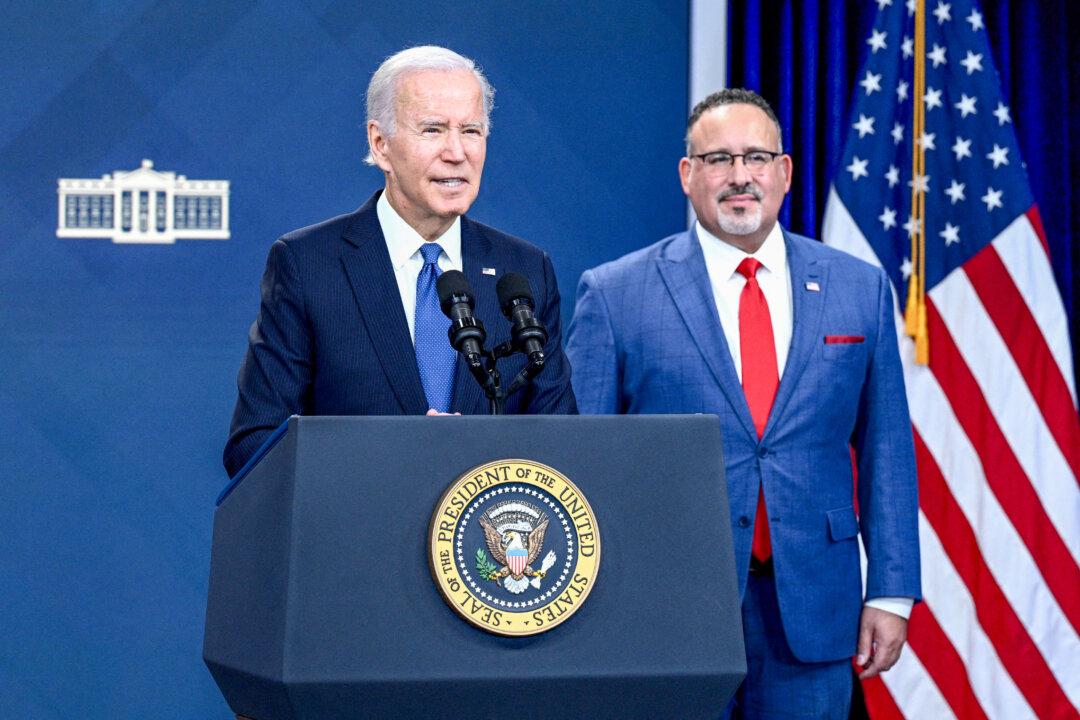Texas told the Supreme Court on Aug. 10 that it wants to press on with a pending emergency application to halt the U.S. Department of Education’s proposed student loan relief plan even after a federal appeals court blocked key parts of it.
Alaska, South Carolina, and Texas filed an application in the complex, heavily litigated case with the Supreme Court on July 5, asking the court to halt the department’s SAVE plan. The plan would cancel some student loan debt and has an estimated price tag of $475 billion. The case is known as Alaska v. Department of Education.





